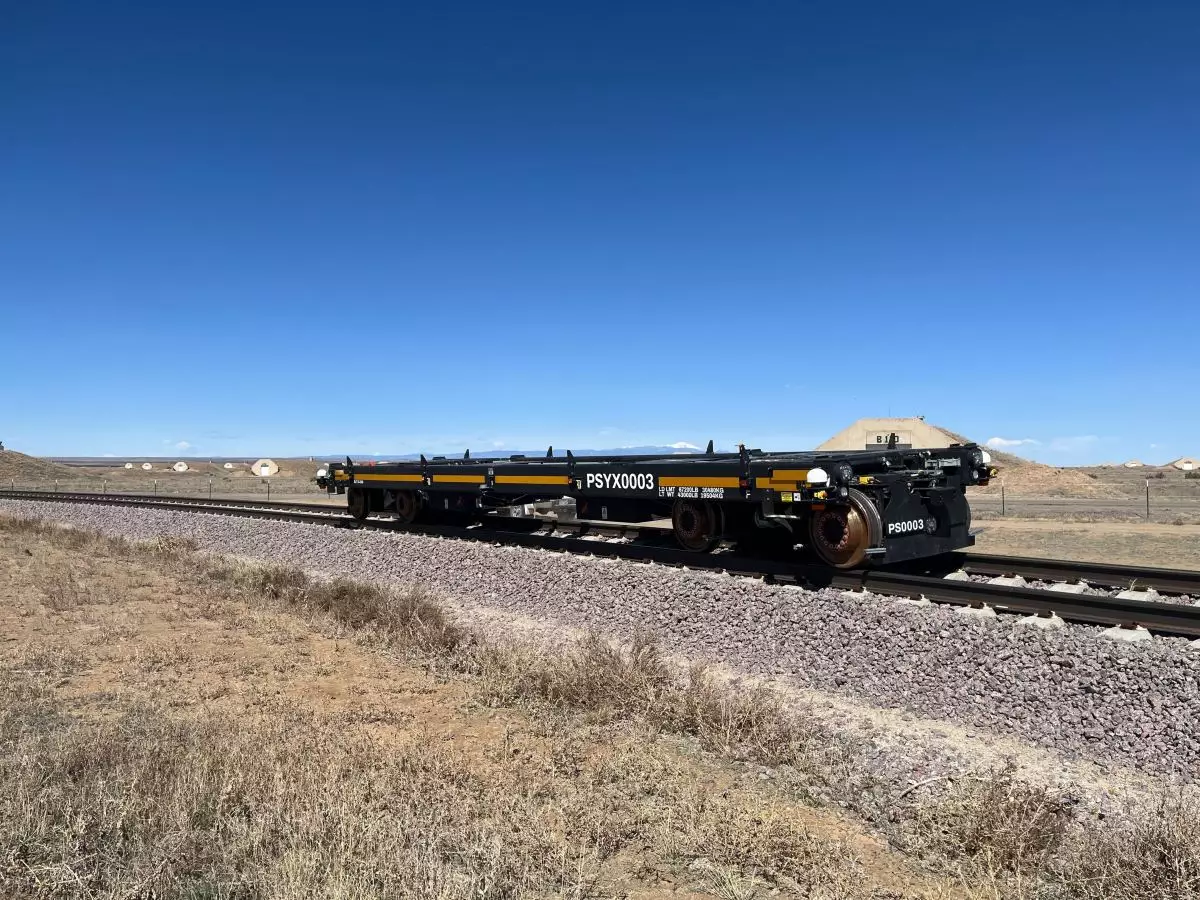In the vast landscape of the freight transport industry in the United States, trucks reign supreme, responsible for approximately two-thirds of the staggering 20.2 billion tons of goods moved annually. This dominion of trucking reflects not only the existing infrastructure but also the challenges associated with rail transport for short-distance deliveries. Despite the environmental advantages rail systems offer, such as reduced emissions and lower energy consumption, the conventional freight system remains tethered to outdated methods, primarily driven by cost and convenience.
Enter Matt Soule, an innovator and CEO of Parallel Systems, who aims to reshape the traditional railroad paradigm. With decades of experience in regulated transportation, especially from his tenure at SpaceX, Soule is no stranger to navigating complex logistics and technological innovation. His vision revolves around creating a new paradigm for freight transport by leveraging battery-powered autonomous technology, which promises to make rail transport as agile and economically viable as trucking for short-haul deliveries.
Rethinking Rail: Autonomous and Efficient
Parallel Systems is embarking on a groundbreaking journey by developing autonomous freight technology that harmonizes with existing rail infrastructure. This approach cleverly sidesteps what has long been a bottleneck for rail logistics: the cumbersome locomotives traditionally required to pull numerous freight cars simultaneously. By designing a system that enables freight cars to autonomously attach and detach, Parallel intends to introduce flexibility previously unavailable in rail transport. This innovation not only enhances operational efficiency but also mitigates the safety hazards associated with manual handling.
In contrast to conventional rail systems designed for long-haul transport, Parallel’s model emphasizes smaller-scale operations that can economically compete with trucking. Through a sophisticated braking system and the ability to navigate existing rail networks effectively, these autonomous train cars represent a significant leap forward, embodying the blend of modern technology with age-old infrastructure.
The Road to Commercialization
Recently granted permission by the Federal Railroad Administration to conduct tests in Georgia, Parallel Systems stands at a pivotal juncture in its journey. By piloting their technology along a 160-mile corridor from the Port of Savannah, the company is on the cusp of demonstrating the practicality and efficiency of autonomous freight transport. Coupled with a successful $38 million Series B funding round that brings its total capital raised to over $100 million, Soule and his team are strategically positioned to push forward into commercialization.
Sophie Bakalar from Collaborative Fund aptly highlighted the unique position of Parallel despite it not fitting neatly within traditional investment theses. The stakes are high—the logistics sector profoundly influences countless consumer-driven industries, making the innovations Parallel offers not only significant for the freight industry but transformative for broader economic paradigms. The investments reflect a growing recognition of the necessity for modern solutions in transportation, emphasizing the urgency with which companies are beginning to rethink their shipping strategies.
Challenges and Opportunities Ahead
One of the most formidable hurdles Soule faces is altering entrenched behaviors in freight transport. Shifting companies’ preferred methods of distribution from trucking to rail requires overcoming significant inertia. However, Soule is optimistic that the market is ripe for change, especially as organizations seek cost-effective solutions amidst evolving trade landscapes affected by tariffs and economic fluctuations. As businesses grapple with rising costs, the allure of lower freight expenses through more efficient rail solutions could spark a fundamental shift in logistics strategies.
Adding to the excitement surrounding this venture is the global interest in Parallel’s technology, although it has opted to concentrate its initial efforts in the U.S. and Australia. The looming tariff uncertainty in the U.S. presents a dual-edged sword; while it may complicate existing logistics channels, it could simultaneously drive companies toward more flexible and cost-effective freight solutions like Parallel’s autonomous rail systems.
Innovation Meets Tradition
For a sector notable for its resistance to change, the freight industry is finding itself at a critical juncture. Innovations such as those championed by Soule represent what he describes as “generational innovation” in freight transport. The risk and reward of navigating this conservative industry with disruptive technology pose exciting prospects for the future of transportation.
Parallel Systems encapsulates a convergence of traditional rail systems and cutting-edge technology. As they embark on this journey, they stand as a beacon for a more efficient, flexible, and sustainable future in freight transport, highlighting the ongoing need for innovation in an industry that has seen little change for far too long. The possibilities are vast, and as technology continues to evolve, so too will the paradigms by which goods are moved across the nation.

